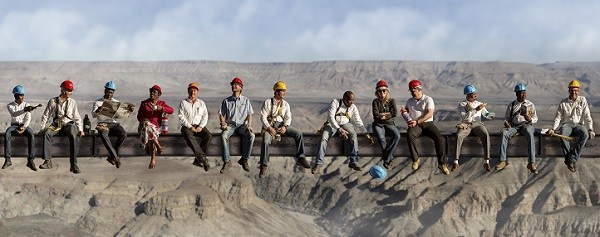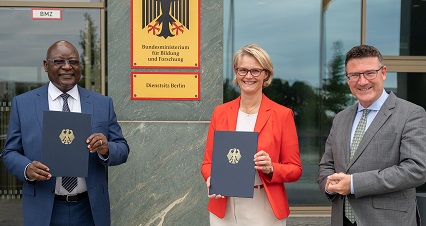
Tender conditions for projects funded by the African Development Bank and China exclude local contractors

Prequalification conditions for the Windhoek / Hosea Kutako airport road and for the Walvis Bay / Kranzberg railway line, effectively disqualify local contractors, according to the Construction Industries Federation (CIF) of Namibia.
Launching the fifth edition of its annual CIF Directory earlier this week, the federation said that if procurement and tender requirements remain as they are now, it is highly unlikely that the approved loan from the African Development Bank, as well as the proposed grants and loans from China for infrastructure projects, will stimulate the local economy and help create more jobs.
Speaking on behalf of its 300 members, the federation highlighted the sore point that all Namibian contractors are automatically excluded from these two large projects, based on prequalification conditions for financial performance and financial resources including annual turnover.
“This becomes very apparent in the recent African Development Bank/Roads Authority Invitation for Prequalification (No. RA/DC-CR/06-2014/2A) for the Construction of Trunk Road 9/1 from Windhoek to Hosea Kutako International Airport to Dual-Carriage Freeway Standards: Phase 2A – Sam Nujoma Interchange to Dordabis Interchange (19.5km) that was issued on 3 September 2018.”
“Similarly, [in] the recent Ministry of Works and Transport Invitation for Prequalification (No. MWT-DRIM/2018-03, ICB No. MWT-DRIMTIIP2018/A1.2) for the Construction of Earthworks, Structures and Plate Laying for the Upgrade of the Railway Line between Walvis Bay and Kranzberg Railway that was issued on 29 August 2018.”
The federation’s consulting General Manager, Bärbel Kirchner, said “the government might have secured favourable financial arrangements with China, however, the question is what are the trade-offs? We should consider the overall costs involved – the loss of Namibia’s own capacity, further retrenchments, even the potential collapse of our entire industry.”
Pointing out that by precluding local contractors, capital is drained out of the local economy, she said “The government must be aware of the opportunity costs and also stop working in silos. How can we hope to tackle poverty and create jobs, and then come up with such deals that exclude our industry, which not only would have created employment opportunities, but also stimulate other sectors of our economy?”
“To avoid the tragedy of even more closures, the CIF demands that the tender for prequalification will be retracted immediately, and that the authorities engage the Namibian construction industry and revisit the tendering requirements,” she continued.
“It begs the question of whether the approach of technically excluding Namibian contractors, is aligned with Namibia’s national development plans and if indeed it is in the interest of addressing unemployment and tackling poverty,” she asked.
Caption: The Executive Committee of the Construction Industries Federation of Namibia as they appear on the fifth edition of the annual CIF Directory, published earlier this week.











































